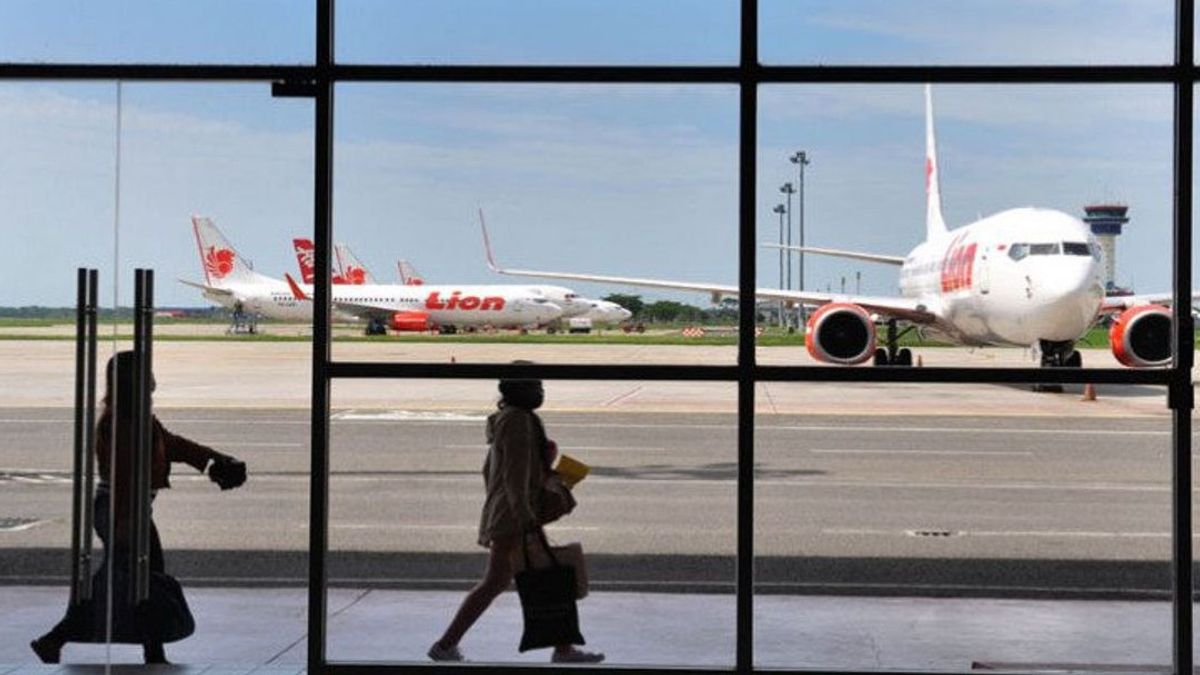JAKARTA - It's no secret that the COVID-19 pandemic has a serious impact on the aviation business. But how serious? A number of studies have placed the low cost carrier (LCC) business as a line that might save the industry. How could it be?
Travel analytics and data company Cirium released a report in January, Cirium's Airline Insights Review 2020. The report shows a significant drop in passengers by 2020. As an illustration of how severe the impact was: the aviation industry goes back two decades.
Let's just say what the airline industry achieved in terms of passenger traffic growth over the past two decades erased to zero again. "Compared to last year (2019), passenger traffic is expected to drop 67 percent by 2020," it said in the report, quoted by VOI from CNBC International, Tuesday, May 25.
"The pandemic and its consequences erased global passenger traffic growth for 21 years in a matter of months, reducing this year's traffic to levels last seen in 1999," the report still quotes.

Cirium's report records a figure of 2.9 trillion passenger kilometers (RPK) revenue in 2020. RPK is a measure used to calculate an airline's flight traffic. That figure is much lower than rpk 2019 which reached 8.7 trillion.
Another decline cirium noted was the airline's flight operations. Between 1 January and 20 December 2020, the airline operated 16.8 million flights. Whereas in the same period in 2019, the number of flight operations reached 33.2 million.
More than 40 airlines have also suspended or even suspended flight operations. Analysts predict more airlines to fail in 2021.
Geliat in China and the U.S.
Furthermore, Cirium's Airline Insights Review 2020 notes the Asia-Pacific and North America regions as perhaps the fastest welcoming recovery. It can be seen from the list of the busiest airports in the world, where the United States (U.S.) and China dominate.
Cirium Vice President of Strategy David White explained major cities like New York, Beijing or Shanghai are not on the list. The dominating domestic flight factor rather than international is a factor. According to the data, international flights fell by 68 percent, on top of the 40 percent drop in domestic flights.
Cirium data predicts passenger demand for air travel will increase again in 2024 or 2025. Domestic and recreational traffic will be the main and first segments to recuperate.
Cheap flights are the industry's hope
Another study, conducted by GlobalData suggests cheap flights may be a hope for the industry. The survey was conducted on 5,766 global respondents, with field work conducted on December 2-6, 2020. There are several main conclusions regarding this.
First, aggressive cost-cutting from low-cost carriers will give them a greater advantage, even when compared to the era before the pandemic. Second, cheap junk airlines are considered the most logical option amid today's uncertainty.
Research shows 87 per cent of consumers show a reaction to concerns about their personal finances. Some of those 87 percent said they were very worried. Others are quite worried and a little worried.
The study also confirms the position of low-cost airlines as the line that will lead the recovery post-COVID-19. They even have the power to help revitalize demand for the industry as a whole.
"Cost-effective measures and operational response will make these operators move quickly to absorb pent-up demand and take advantage of any opportunities ahead of other high-cost model airlines," it said in the report.

GlobalData Travel and Tourism Analyst Gus Gardner said the low-cost airline's business model turned out to be the most effective. Operationally, businesses, including in terms of money management, they have high flexibility.
In more detail Gardner lays out the high level of resilience and flexibility he meant. According to him, that flexibility includes how they structure network planning and aircraft deployment.
"The sales and lease re-lease agreements made by easyJet have given the company high fleet flexibility to better respond to changing demand in the coming years. This puts him in a much stronger position than the old operators who have stopped the aircraft from its fleet."
"The low rates offered by the LCC will better meet the need for increased affordability. Cost-cutting measures would allow LCC to push prices to new lows if necessary and still break even, leaving other operators at risk of unprofitable flying if they choose to compete."
"These airlines are likely to gain a stronger foothold in the market as a result of the pandemic. With leisure travel likely to recover first and LCC short distances, the point-to-point network will be better suited for pandemic-alert travellers looking for a closer trip home."
*Read more information about COVID-19 or read other interesting writings from Didi Kurniawan, Mery Handayani and Yudhistira Mahabharata.
Other BERNAS
The English, Chinese, Japanese, Arabic, and French versions are automatically generated by the AI. So there may still be inaccuracies in translating, please always see Indonesian as our main language. (system supported by DigitalSiber.id)








